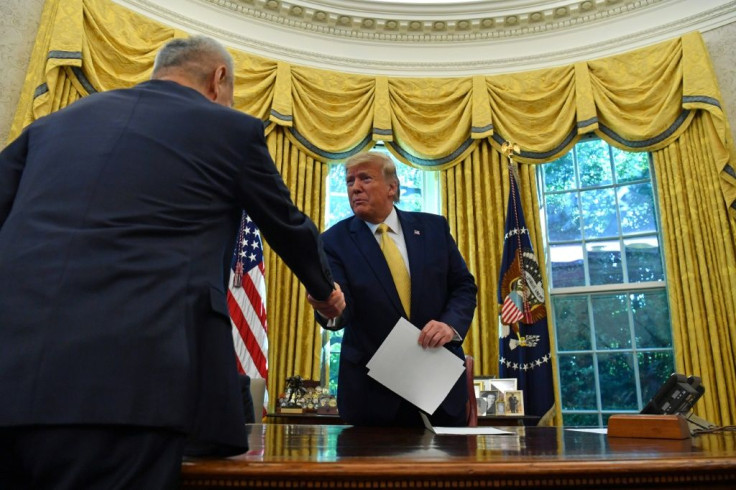US-China Phase One Trade Deal To Be Delayed Until Next Year, Experts Say

The phase one U.S.-China trade deal may not happen soon. According to the latest news that quoted people close to the White House, the mini trade deal could well slip into the next year.
President Donald Trump and Treasury Secretary Steven Mnuchin had said on October 11 that an initial trade deal is only five weeks away. Now five weeks later, the deal looks elusive, and negotiations are stuck, per Reuters report that quoted insider sources.
How China will evade the proposed tariffs from Dec.15 is keenly watched.
“If talks are going well, that hike will be suspended,” said Christian Whiton, a senior fellow at the Center for the National Interest, and a former Trump administration adviser.
“If not, the U.S. will implement them and that will throw the game into next year,” Whiton added.
Trump against tariff reversal
Reports said the main roadblock to an interim deal is China’s pressure to scrap tariffs which Trump and U.S. Trade Representative Robert Lighthizer consider risky until the main issues of intellectual property and technology transfer are addressed.
However, officials from Beijing hint that Chinese President Xi Jinping and Trump may sign a deal in early December. Some reports said Dec. 15, could be the date to watch out when 15 percent tariffs on $156 billion worth Chinese goods will take effect and cover gift items like electronics and Christmas decorations.
Those tariffs could also affect American tech giant Apple whose iPhones have a substantial production base in China. Apple products like the high demand iPhone x, iPad and MacBook will face serious tariff pressure, if a mini deal is not happening.
Hong Kong hurdle
Meanwhile, a Bloomberg report said trade negotiators from the U.S. and China are making incremental progress in key areas despite the chances of a phase one deal looking dismal.
Failure to clinch an interim deal can trigger another round of tit-for-tat tariffs.
Bloomberg News said a new hurdle is Hong Kong related bill in the U.S. Congress seeking Trump’s signature placing conditions of annual reviews of its special status and sanctioning officials curbing its autonomy. This has annoyed China and it may retaliate.
Adding to the speculation that a phase one trade deal is off the table was the statement in the Chinese Communist Party’s newspaper, the People’s Daily. It said China president Xi Jinping’s recent visit to Brazil was his “final foreign trip this year,” and there are no plans to go abroad for any ceremony in the closing weeks of 2019.
However, in a recent video conference between Robert Lighthizer, Trump’s trade representative, Treasury Secretary Steven Mnuchin and China’s Vice Premier Liu He both sides reportedly agreed to work on a deal to avoid the tariffs coming up in December.
© Copyright IBTimes 2025. All rights reserved.





















